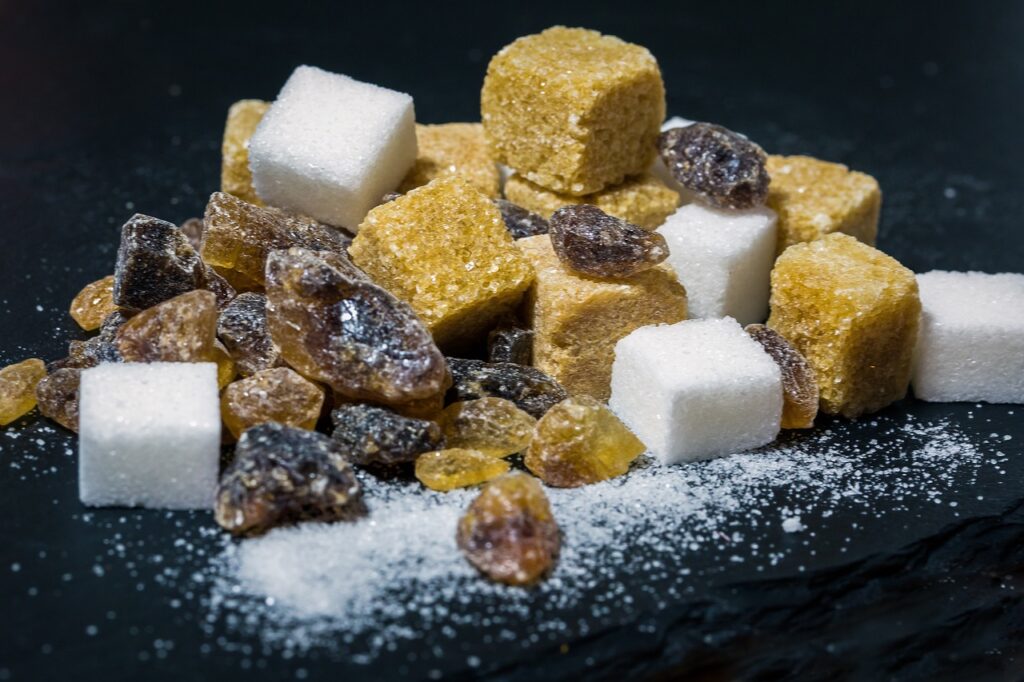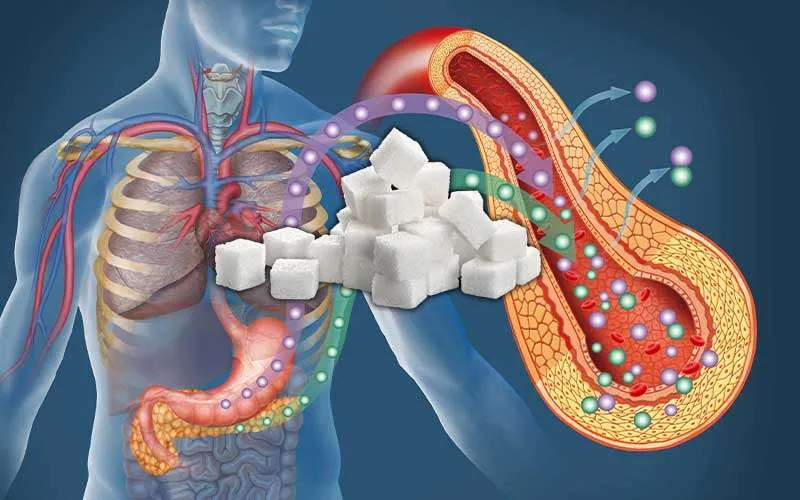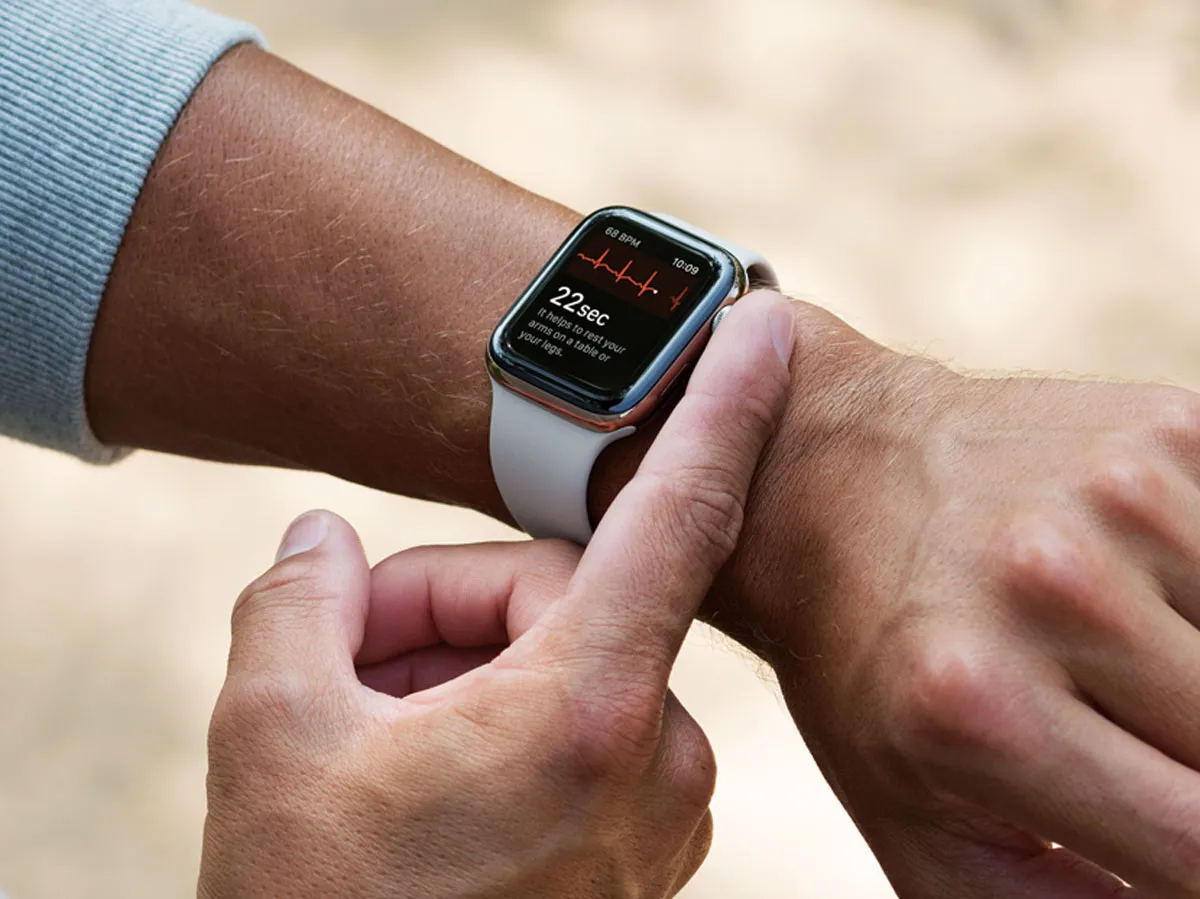Are you addicted to sugar? Learn how to stop this powerful craving with practical tips and strategies. Discover why we crave sugar, the dangers of excessive consumption, and effective methods to reduce sugar intake for a healthier lifestyle. Key tips include eating a balanced diet, staying hydrated, exercising, avoiding artificial sweeteners, getting enough sleep, and managing stress. With the right approach, you can overcome sugar addiction and lead a healthier life.

Introduction
How to stop this powerful craving is a question many people ask. Sugar addiction can be overwhelming, making it difficult to lead a healthy lifestyle. In this article, we will explore what sugar addiction is, why we crave sugar, the dangers of excessive sugar consumption, and practical steps to overcome these cravings.
What is Sugar Addiction?
Sugar addiction refers to the intense and often uncontrollable desire for sugary foods and beverages. This condition is similar to other forms of addiction, where the brain’s reward system is activated, leading to a cycle of cravings and consumption. Understanding the nature of sugar addiction is the first step in learning how to stop.
Why We Crave Sugar
We crave sugar for various reasons, including biological, psychological, and environmental factors. Sugar stimulates the release of dopamine, a feel-good neurotransmitter, which creates a sense of pleasure. Over time, our bodies and brains become conditioned to seek out this pleasurable sensation, leading to sugar addiction.
The Dangers of Excessive Sugar
Consuming too much sugar can have serious health consequences. Excessive sugar intake is linked to obesity, type 2 diabetes, heart disease, and dental problems. Furthermore, it can lead to mood swings, energy crashes, and cognitive impairments. Knowing these dangers can motivate you to stop being addicted to sugar.

If You Are Hungry, Eat a Healthy and Filling Meal
When you feel hungry, it’s easy to reach for a sugary snack. However, eating a healthy and filling meal can help you avoid this temptation. Choose meals rich in protein, healthy fats, and fiber to keep you full and satisfied.
Take a Hot Shower
Taking a hot shower can help reduce sugar cravings. The warm water relaxes your muscles and mind, providing a soothing distraction from the urge to consume sugar.
Go for a Brisk Walk Outside
Exercise is a great way to combat sugar addiction. Going for a brisk walk outside can boost your mood and energy levels, making it easier to resist sugary snacks.

Here are 11 More Useful Tips to Stop Sugar Cravings:
Drink a Glass of Water
Sometimes, thirst is mistaken for hunger or cravings. Drink a glass of water and wait a few minutes to see if the craving subsides.
Eat a Fruit
Fruits contain natural sugars along with fiber, vitamins, and minerals. Eating a piece of fruit can satisfy your sweet tooth in a healthier way.
Avoid Artificial Sweeteners
Artificial sweeteners can sometimes increase cravings for sugar. Avoiding them may help reduce your overall sugar intake.
Eat More Protein
Protein helps regulate blood sugar levels and can keep you feeling full longer. Incorporate more protein into your diet to curb sugar cravings.
Talk to a Friend
Sometimes cravings are emotional. Talking to a friend can provide support and distraction from the urge to eat sugar.
Sleep Well
Lack of sleep can increase cravings for sugary foods. Ensure you get enough rest to help control your appetite and cravings.
Avoid Excess Stress
Stress can lead to emotional eating and sugar cravings. Practice stress-reducing techniques like meditation, yoga, or deep breathing exercises.
Avoid Certain Triggers
Identify and avoid triggers that lead to sugar cravings, such as specific foods, places, or activities.
Take a Multivitamin
Sometimes cravings can be a sign of nutritional deficiencies. Taking a multivitamin can help ensure you’re getting all the nutrients you need.
Read Your List
Keep a list of reasons why you want to reduce your sugar intake. When cravings hit, read your list to remind yourself of your goals.
Eat a Balanced Meal
Imbalanced meals like junk foods can lead to intense sugar cravings. Eat healthy and regular balanced meals to maintain steady blood sugar levels and reduce cravings.
Alternative and Effective Methods to Cut Back on Sugar
Intermittent Fasting
Intermittent fasting can help reduce sugar cravings by stabilizing blood sugar levels and improving insulin sensitivity. This eating pattern involves alternating periods of fasting and eating.
Ketogenic Diet
The ketogenic diet, which is high in fats and low in carbohydrates, can help reduce sugar cravings by shifting your body’s energy source from glucose to ketones.
Frequently Asked Questions:
How Can I Overcome My Sugar Addiction?
Overcoming a sugar addiction can be challenging, but it is entirely possible with the right strategies. Here are effective steps to help you break free from sugar cravings and lead a healthier life:
1. Understand Your Triggers
- Identify Emotional Triggers: Stress, boredom, and emotional distress can trigger sugar cravings. Recognize these triggers and find healthier ways to cope, such as exercising or talking to a friend.
- Avoid Environmental Triggers: Keep sugary foods out of your home and workplace. Replace them with healthier alternatives like fruits, nuts, and yogurt.
2. Balance Your Diet
- Eat Regular Meals: Skipping meals can lead to intense sugar cravings. Ensure you eat balanced meals regularly to maintain steady blood sugar levels.
- Include Protein and Fiber: Incorporate more protein and fiber into your diet. These nutrients help you feel full longer and stabilize blood sugar levels, reducing cravings.
3. Stay Hydrated
- Drink Plenty of Water: Sometimes, thirst is mistaken for hunger or cravings. Drinking water can help curb the urge for sugary snacks.
4. Find Healthy Substitutes
- Choose Natural Sweeteners: Replace refined sugars with natural sweeteners like honey, maple syrup, or stevia. However, use them sparingly.
- Opt for Fruits: Satisfy your sweet tooth with fruits that contain natural sugars and provide essential vitamins and fiber.
5. Manage Stress and Sleep
- Practice Stress Reduction: Engage in stress-reducing activities like yoga, meditation, or deep breathing exercises. Reducing stress can help control emotional eating.
- Get Adequate Sleep: Lack of sleep can increase sugar cravings. Aim for 7-9 hours of quality sleep each night to help regulate your appetite.
6. Gradual Reduction
- Cut Back Gradually: Instead of eliminating sugar completely, reduce your intake gradually. This approach makes it easier for your body to adjust and reduces withdrawal symptoms.
7. Stay Active
- Exercise Regularly: Physical activity can help reduce cravings by releasing endorphins and stabilizing blood sugar levels. Aim for at least 30 minutes of exercise most days of the week.
8. Seek Support
- Join Support Groups: Connect with others who are also trying to reduce their sugar intake. Support groups can provide motivation and helpful tips.
- Consult a Professional: Consider seeking help from a nutritionist or therapist who can provide personalized advice and strategies.
By following these steps and staying committed, you can overcome your sugar addiction and improve your overall health. Remember, change takes time, so be patient and consistent with your efforts.
Can Sugar Addiction Be Cured?
Sugar addiction can be managed and significantly reduced, but the concept of a complete “cure” is more complex. Here’s what you need to know:
Understanding Sugar Addiction
Sugar addiction involves strong cravings and a dependency on sugary foods. These cravings can lead to overconsumption, which can have various negative health effects. Overcoming this addiction requires a combination of behavioral changes, dietary adjustments, and sometimes professional support.
Managing Sugar Addiction
While it might be challenging to eliminate cravings entirely, there are effective strategies to manage and reduce them:
1. Dietary Changes
- Reduce Gradually: Gradually cut back on sugar intake instead of stopping abruptly. This helps your body adjust and reduces withdrawal symptoms.
- Balanced Meals: Eat regular, balanced meals with adequate protein, fiber, and healthy fats to keep you full and stabilize blood sugar levels.
2. Healthy Substitutes
- Choose Natural Sweeteners: Use natural sweeteners like honey or stevia in moderation instead of refined sugars.
- Eat Fruits: Satisfy your sweet tooth with fruits, which contain natural sugars and provide essential nutrients.
3. Behavioral Adjustments
- Identify Triggers: Recognize and avoid triggers that lead to sugar cravings, such as stress, boredom, or certain environments.
- Stress Management: Practice stress-reducing activities like yoga, meditation, or deep breathing exercises.
4, Regular Exercise
- Stay Active: Regular physical activity can help reduce cravings by releasing endorphins and improving overall health. Aim for at least 30 minutes of exercise most days.
5. Professional Support
- Consult a Nutritionist: A nutritionist can provide personalized dietary advice and strategies to reduce sugar intake.
- Therapy: Behavioral therapy can help address the psychological aspects of sugar addiction.
Long-Term Success
Overcoming sugar addiction is an ongoing process rather than a one-time cure. By adopting a healthier lifestyle and maintaining consistent habits, you can manage and reduce your dependency on sugar effectively. While sugar addiction might not be “cured” in the traditional sense, it can be managed successfully. With the right strategies and support, you can significantly reduce cravings and lead a healthier life. Patience and persistence are key to overcoming this addiction.
Why Am I Craving Sugar So Much?
Craving sugar is a common experience, and it can be due to several factors. Understanding these reasons can help you manage and reduce your sugar cravings effectively. Here’s why you might be craving sugar so much:
1. Blood Sugar Levels
- Fluctuations: Rapid changes in blood sugar levels can trigger cravings. Eating sugary foods causes a quick spike in blood sugar, followed by a rapid drop, leading to more cravings.
- Poor Diet: Consuming too many refined carbs and sugars can create a cycle of high and low blood sugar levels, making your body crave more sugar.
2. Emotional Triggers
- Stress: Stress can increase sugar cravings as your body seeks quick energy and comfort. Sugary foods can temporarily boost serotonin levels, creating a calming effect.
- Boredom or Loneliness: Emotional states like boredom or loneliness can lead to emotional eating, where sugary foods are often the go-to choice for a quick mood boost.
3. Habit and Conditioning
- Conditioned Response: If you frequently reach for sugary snacks, your body and brain become conditioned to crave sugar in certain situations or times of the day.
- Habitual Eating: Regularly consuming sugar can become a habit, making it difficult to break the cycle of cravings.
4. Nutritional Deficiencies
- Lack of Nutrients: Deficiencies in certain nutrients, such as magnesium, chromium, or B vitamins, can trigger sugar cravings as your body seeks quick energy sources.
- Inadequate Protein and Fiber: Not eating enough protein and fiber can leave you feeling unsatisfied, leading to cravings for sugary foods.
5. Sleep Deprivation
- Hormonal Imbalance: Lack of sleep can disrupt the balance of hunger hormones like ghrelin and leptin, increasing appetite and cravings for high-energy foods like sugar.
- Low Energy Levels: When you’re tired, your body seeks quick sources of energy, often leading to sugar cravings.
6. Dehydration
- Mistaking Thirst for Hunger: Sometimes, dehydration can be mistaken for hunger or sugar cravings. Drinking enough water throughout the day can help reduce these cravings.
Managing Sugar Cravings
To manage and reduce sugar cravings, consider the following strategies:
- Balanced Diet: Eat regular, balanced meals with adequate protein, healthy fats, and fiber to maintain stable blood sugar levels.
- Stress Management: Practice stress-reducing activities such as yoga, meditation, or deep breathing exercises.
- Regular Exercise: Engage in regular physical activity to boost your mood and energy levels naturally.
- Hydration: Drink plenty of water throughout the day to stay hydrated and reduce cravings.
- Sleep Well: Ensure you get 7-9 hours of quality sleep each night to regulate hunger hormones and reduce cravings.
Understanding why you crave sugar and implementing these strategies can help you take control of your cravings and lead a healthier lifestyle.
What Causes a Sugar Addiction?
Sugar addiction is driven by several factors, including biological, psychological, and environmental influences. Understanding these causes can help you take steps to manage and overcome your addiction. Here’s a closer look at what causes a sugar addiction:
1. Biological Factors
- Brain Chemistry: Sugar stimulates the release of dopamine, a neurotransmitter associated with pleasure and reward. This creates a sense of euphoria, similar to the effects of addictive substances, leading to repeated consumption and addiction.
- Blood Sugar Levels: Frequent consumption of sugary foods causes rapid spikes and crashes in blood sugar levels. These fluctuations can create a cycle of cravings and consumption, making it difficult to break free from sugar dependency.
- Hormonal Imbalances: Hormones like insulin and leptin play a role in regulating hunger and satiety. High sugar intake can disrupt these hormones, leading to increased hunger and cravings for more sugar.
2. Psychological Factors
- Emotional Eating: Stress, anxiety, depression, and other emotional states can trigger cravings for sugary foods as a form of comfort. Sugar provides a temporary mood boost, reinforcing the habit of emotional eating.
- Habit and Conditioning: Over time, consuming sugar becomes a habitual behavior. The more you indulge in sugary foods, the more your brain associates them with positive feelings, creating a conditioned response that drives addiction.
3. Environmental Factors
- Availability and Accessibility: Sugary foods and drinks are widely available and often more convenient than healthier options. This easy access can lead to increased consumption and addiction.
- Marketing and Advertising: Constant exposure to advertisements for sugary foods and beverages can influence cravings and consumption patterns, contributing to sugar addiction.
- Social Influences: Social situations, such as celebrations and gatherings, often involve sugary treats. Peer pressure and social norms can encourage overconsumption of sugar.
4. Nutritional Deficiencies
- Lack of Essential Nutrients: Deficiencies in certain nutrients, such as magnesium, chromium, or B vitamins, can lead to increased sugar cravings. Your body may crave sugar as a quick source of energy to compensate for the lack of essential nutrients.
- Inadequate Protein and Fiber Intake: Diets low in protein and fiber can leave you feeling unsatisfied, prompting you to seek out sugary foods for a quick energy boost.
Managing Sugar Addiction
To overcome sugar addiction, consider the following strategies:
- Balanced Diet: Incorporate more protein, healthy fats, and fiber into your meals to keep you full and stabilize blood sugar levels.
- Stress Management: Practice stress-reducing activities such as yoga, meditation, or deep breathing exercises to reduce emotional eating.
- Regular Exercise: Engage in regular physical activity to boost your mood and energy levels naturally.
- Mindful Eating: Pay attention to your eating habits and recognize triggers that lead to sugar consumption. Replace sugary foods with healthier alternatives.
- Professional Support: Seek guidance from a nutritionist or therapist who can provide personalized advice and support for overcoming sugar addiction.
Understanding the causes of sugar addiction is the first step toward managing and overcoming it. By addressing these underlying factors, you can take control of your cravings and lead a healthier, more balanced life.
Key Takeaway
Overcoming sugar addiction is challenging, but it’s possible with the right strategies and mindset. By understanding why we crave sugar, recognizing the dangers of excessive consumption, and implementing practical tips and alternative methods, you can reduce your sugar intake and lead a healthier life. Start today and take control of your sugar cravings for a better, healthier you.





